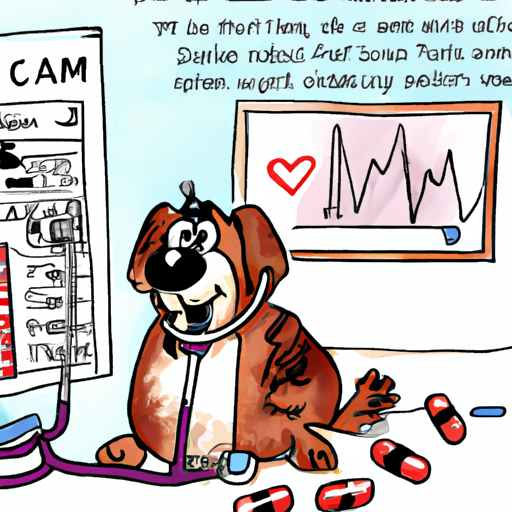Understanding Congestive Heart Failure
Congestive heart failure (CHF) in dogs is a complex, multifaceted condition. It’s a profound diagnosis that can leave you, a loving and dedicated caregiver, feeling helpless and overwhelmed. The heart, failing to pump blood effectively, causes fluid to back up in the lungs and abdomen. This condition can arise from a variety of underlying causes, making it crucial to understand the complexities involved.
The Underlying Causes
The causes of CHF in dogs are numerous, but they generally fall into two main categories: acquired diseases and congenital heart defects.
-
Acquired Diseases: This category encompasses diseases your dog may acquire over time due to age, lifestyle, or environment. It includes conditions such as:
- Dilated cardiomyopathy
- Degenerative valve disease
- Heartworm disease
-
Congenital Heart Defects: These are heart defects that your dog is born with. They include conditions like:
- Aortic stenosis
- Patent ductus arteriosus
- Ventricular septal defect
| Acquired Diseases | Congenital Heart Defects |
|---|---|
| Dilated cardiomyopathy | Aortic stenosis |
| Degenerative valve disease | Patent ductus arteriosus |
| Heartworm disease | Ventricular septal defect |
Recognizing the Symptoms
Being vigilant about your dog’s health can help in early detection of CHF. In the second person, you’d be looking for symptoms such as:
- Persistent coughing
- Difficulty breathing
- Fatigue
- Decreased appetite
- Swelling in the abdomen
These symptoms may initially seem insignificant or unrelated to heart disease, but they could be telltale signs of CHF.
Management of Congestive Heart Failure
Managing CHF in dogs is a balancing act that requires careful monitoring and a comprehensive treatment plan. This might include:
- Medication: Your vet may prescribe medications to help your dog’s heart function more effectively.
- Diet: A low-sodium diet can help manage fluid build-up.
- Exercise: Regular, gentle exercise can help maintain overall health without putting undue strain on the heart.
Remember, this journey is one taken step by step, in partnership with your trusted veterinarian.
Prevention: Can CHF in Dogs be Prevented?
The short answer is not always. While some causes of CHF cannot be prevented, others can be managed or avoided. Regular check-ups, a healthy diet, and an active lifestyle can contribute to your dog’s overall heart health.
FAQ
Q: What is the life expectancy for a dog with CHF?
A: It varies widely depending on the severity of the condition and the dog’s overall health. Some dogs live many years with proper management.
Q: Can a dog with CHF still exercise?
A: Yes, but it’s important to keep the exercise gentle and not overly strenuous.
Q: Is CHF painful for dogs?
A: CHF itself is not usually painful, but symptoms like breathing difficulties can cause discomfort.
Q: What medications are used to treat CHF in dogs?
A: Common medications include ACE inhibitors, diuretics, and beta-blockers. However, the exact medication will depend on the specific needs of your dog.



